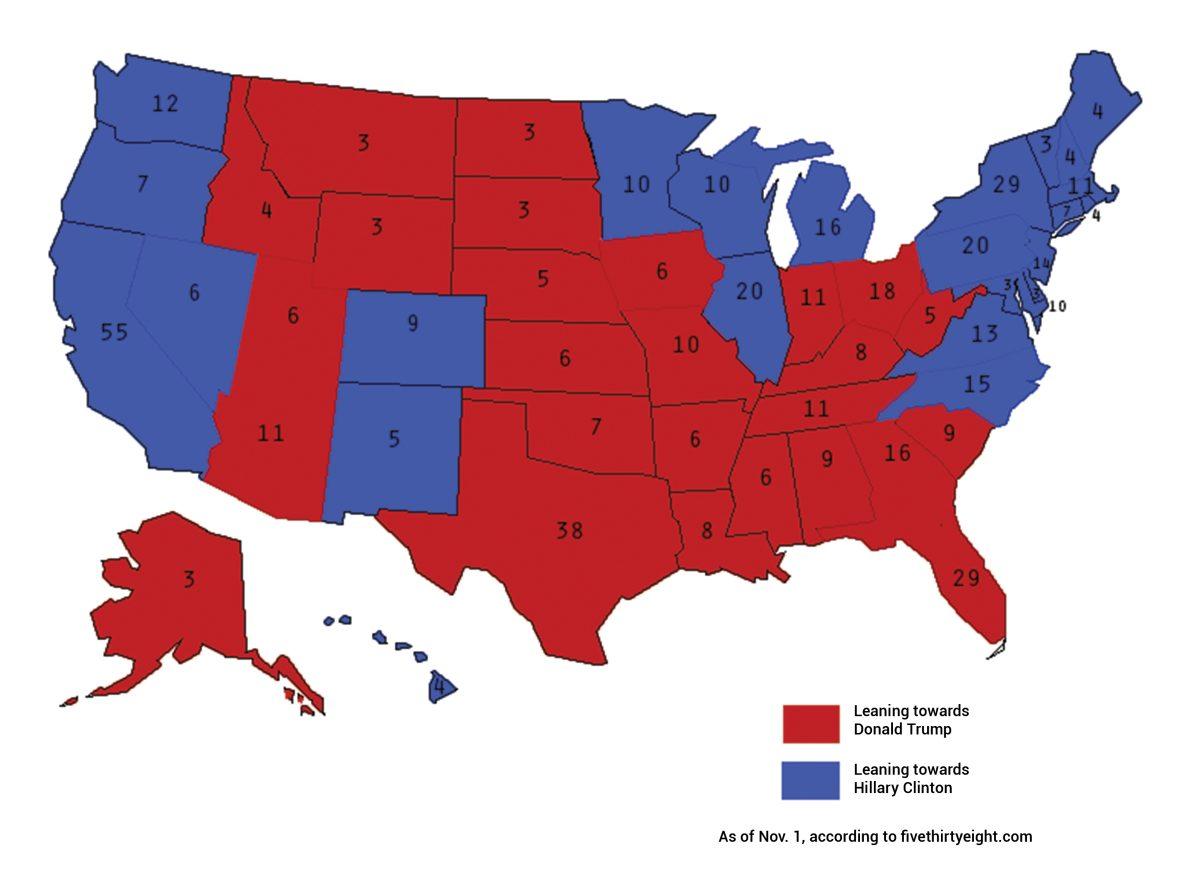Accompanying the popular vote of this democratic nation, the Electoral College holds immense political influence over the outcome of a United States presidential election. The body was enveloped in some controversy with the W. Bush-Gore election of 2000, leading many to question its authority and validity as a representation of the people.
“During the Constitutional Convention (of 1787), some people … thought that the people of the country should elect the president directly,” said professor Dennis Goldford, chair of Drake University’s political science department. “Most didn’t think that. Others said that the president should be picked by the Congress, the way a Prime Minister would be picked by Parliament in Great Britain. They thought that would make the president too dependent upon Congress, so they were looking for some method in between. For various reasons they settled on what they called electors.”
The Electoral College is a representation of a nation’s political identity. The number of party officials mirrors the number of elected congressmen in each state.
“In Iowa, there are four members of the House and two senators, so that’s six electoral votes,” Goldford said.
The Electoral College consists of 538 officials or electors, due to the 435 members in the House of Representatives and 100 individuals in the Senate. The last three come from Washington DC, who must receive the minimum number of electoral votes with three.
“The idea of the electors is that they were to take into account the views of the people in their state, but ultimately they could decide for themselves who the best candidate could be,” Goldford said.
29 states have laws or state and party pledges that require electors to choose the president based on how the people they represent voted. In the 21 states that do not have such laws, it is traditional for electors to cast their votes for the presidential candidate with the most votes in their state. Deviation from this tradition is a very rare occurrence.
“The popular vote election on the Tuesday following the first Monday of November … that’s actually a kind of expensive public opinion poll,” Goldford said.
In Iowa, the Democratic and Republican parties each choose six electoral candidates. If Donald Trump wins the popular vote, it is said that the “Trump Slate” won. The Republican Party would then send its six representatives to vote as a unified body for Trump in the Electoral College. The same would happen for the Democrats if Hillary Clinton is to win.
“To be president you have to have a majority,” Goldford said. “538 divided by 2 is 269, so the smallest majority you can have is 270.”
The electoral system is as old as the United States democracy itself and originated in a different era of history. Some Drake students question its place in the 21st century.
“When they created the Electoral College, the country was in a very different state,” said Kiley Roach, a political science major at Drake. “We were much more underdeveloped. There were no real media outlets. There were some newspapers. There were people who traveled on horseback to deliver the mail, so news did not travel throughout the colonies very rapidly. So in the case of an election, people were very ill informed about the candidates who were running.”
The Electoral College historically acted as a compromise between the average citizen and the well-versed, informed and involved individuals arguably more capable of determining the president.
“I think the Electoral College today is necessary to a degree because the majority of the American people are unmotivated to learn about candidacy and to actually go out and cast their votes,” Roach said.
The popular vote and the Electoral College rarely conflict with each other, yet in moments of uncertainty the conclusive decision of the electoral vote is prioritized over the people’s vote. This leads many to believe that their votes do not matter despite the popular opinion’s ability to sway the electoral candidates.
“Young people say, ‘Why should I vote? (The candidates) don’t pay any attention to me.’” Goldford said. “But a candidate’s view is, ‘Why should I pay attention to them? They don’t vote.’ If young people start to vote, (candidates) will pay attention to them.”
Roach encourages her peers to be well informed in the upcoming election.
“This is the country that we are inheriting,” Roach said. “This is the economy that we are inheriting. As we are the up-and-coming generation, this is what we get to work with. So I would really encourage all of my fellow college students to really learn about the presidential candidates.”







